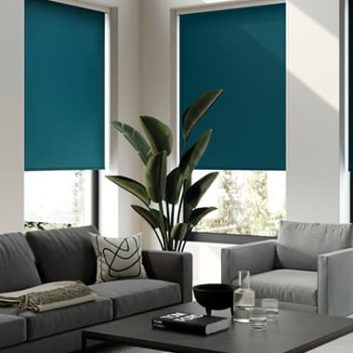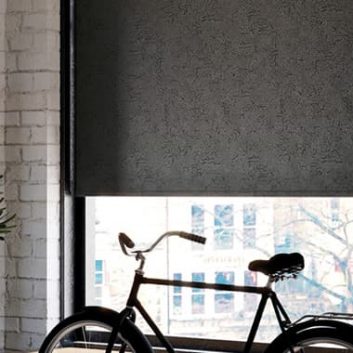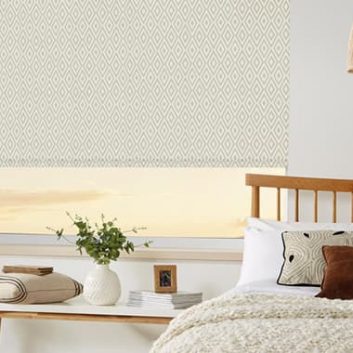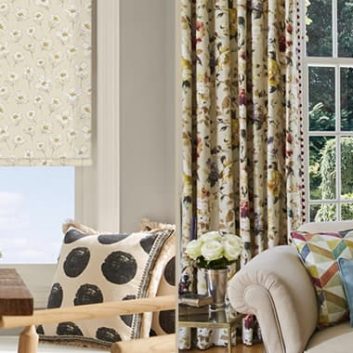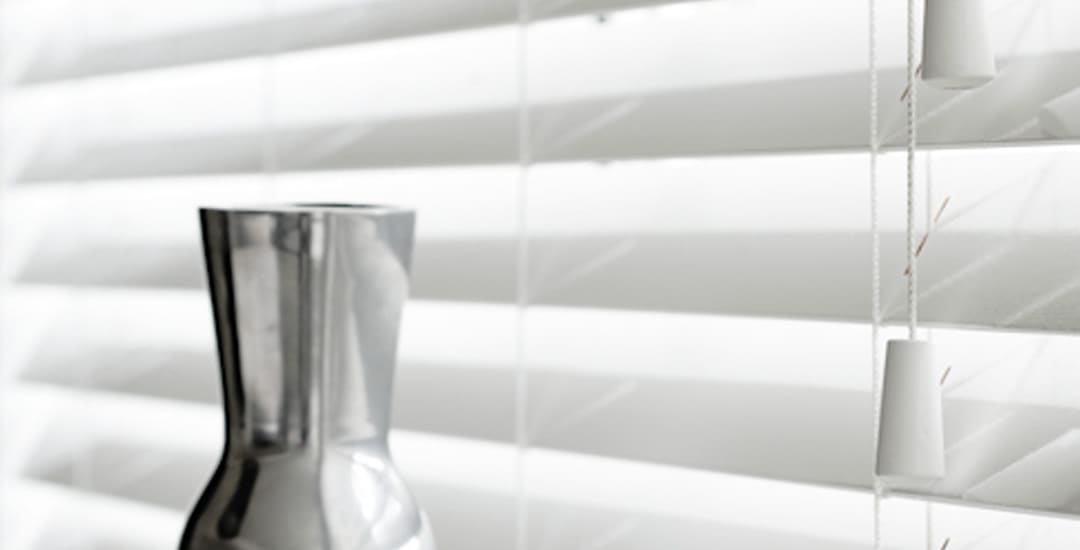
Yes, faux-wood blinds are what most people would consider to be waterproof, and they are suitable for use in most environments where this might be relevant. That said, they might not be suitable for use in a wet room where they’re going to get very wet on a very regular basis, for reasons I’ll talk about shortly; but overall, faux-wood blinds can fairly be considered to be functionally waterproof.
Are faux-wood blinds waterproof all over?
The slats of faux-wood Venetian blinds are made of rigid PVC, which is 100% waterproof. The headrail is made of the same material in a slightly different style, making this waterproof too, and overall, faux-wood blinds are a good pick for use in moist and humid conditions.
That said, the optional ladder tapes of faux-wood blinds are not waterproof; these are the strips of fabric that run vertically up the slats to cover the lift cords, and which are also a design feature of the blind that can be made in various different colours and finishes.
Can faux-wood blinds get wet?
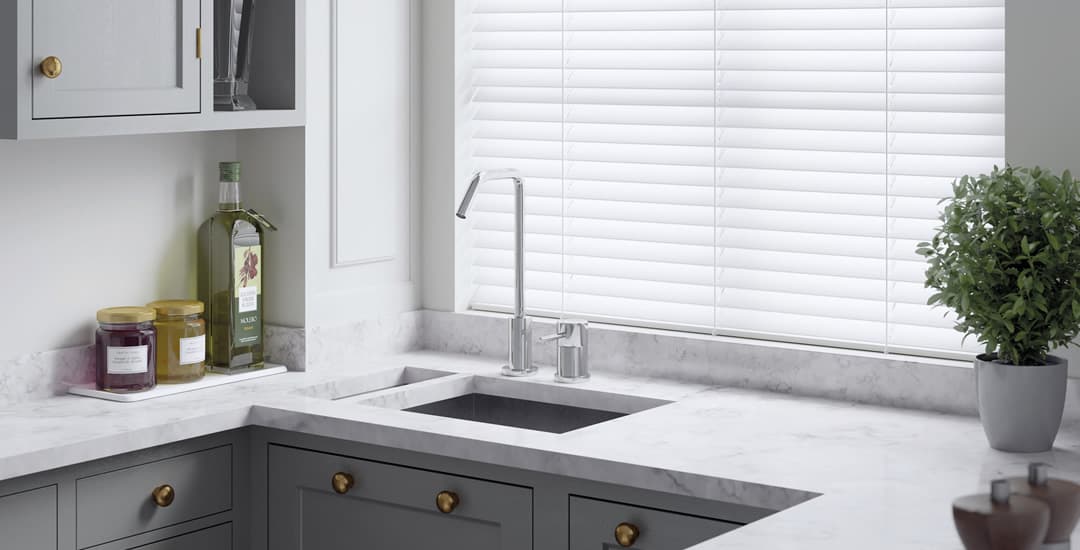
Faux-wood blinds can be exposed to more or less any level of humidity or ambient moisture in the air, even in rooms that get very steamed up or on windows that are highly prone to condensation.
It is only the ladder tapes of a faux-wood blind that you need to avoid getting overly wet, particularly on a regular basis; but they can still tolerate being splashed with smallish amounts of water, or occasionally, getting fully wet, as long as they’re allowed to dry out properly (which means leaving the blind closed/down so that the fabric ladder tapes can air out).
That said, if you know your blind is apt to get very wet, very regularly – for instance, if the room in question is a wet room with the blind close to a source of water – you might want to rethink this choice and choose a faux-wood blind without tapes.
Are faux-wood blinds waterproof enough to use in bathrooms and kitchens?
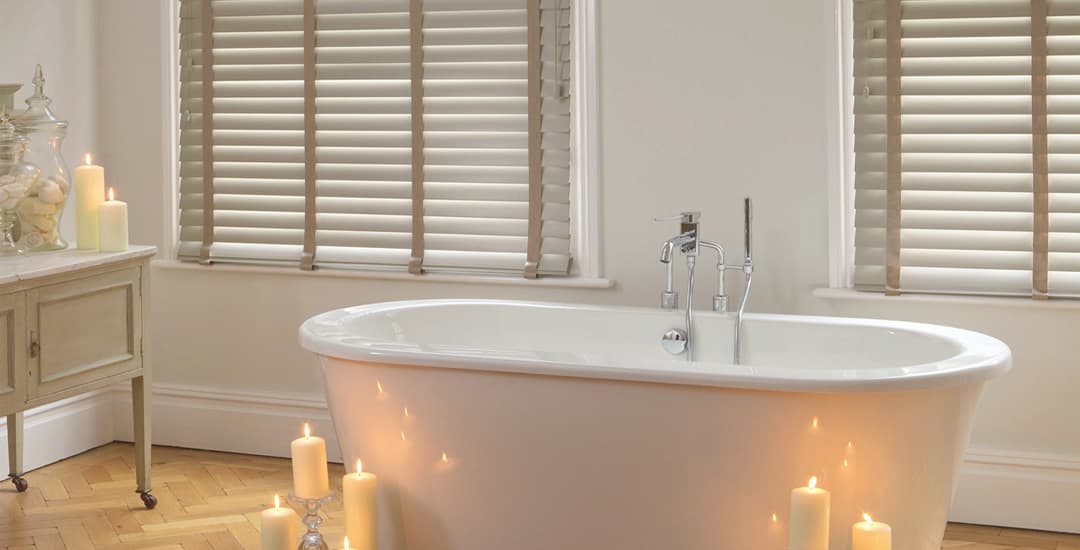
For the vast majority of kitchens and bathrooms, faux-wood blinds are absolutely fine. This holds true even for kitchens/bathrooms that are poorly ventilated and prone to getting very steamed up.
If your window/blind is directly behind the kitchen sink, consider if the blind is likely to get splashed; this isn’t generally something that happens regularly, but if you have the type of taps/sink that is prone to splashing and your blind is within range of this when it’s down, your ladder tapes may begin to suffer over time.
For bathrooms, again unless your blind is likely to get heavily splashed or soaked with water, a faux-wood blind will be fine, and will be able to withstand any level of steam and humidity.
Whatever room you use your faux-wood blind in, we do recommend leaving it extended/down for a few hours if it gets wet or is exposed to a lot of humidity, to allow the cords, ladder tapes and the blind as a whole to dry out.

